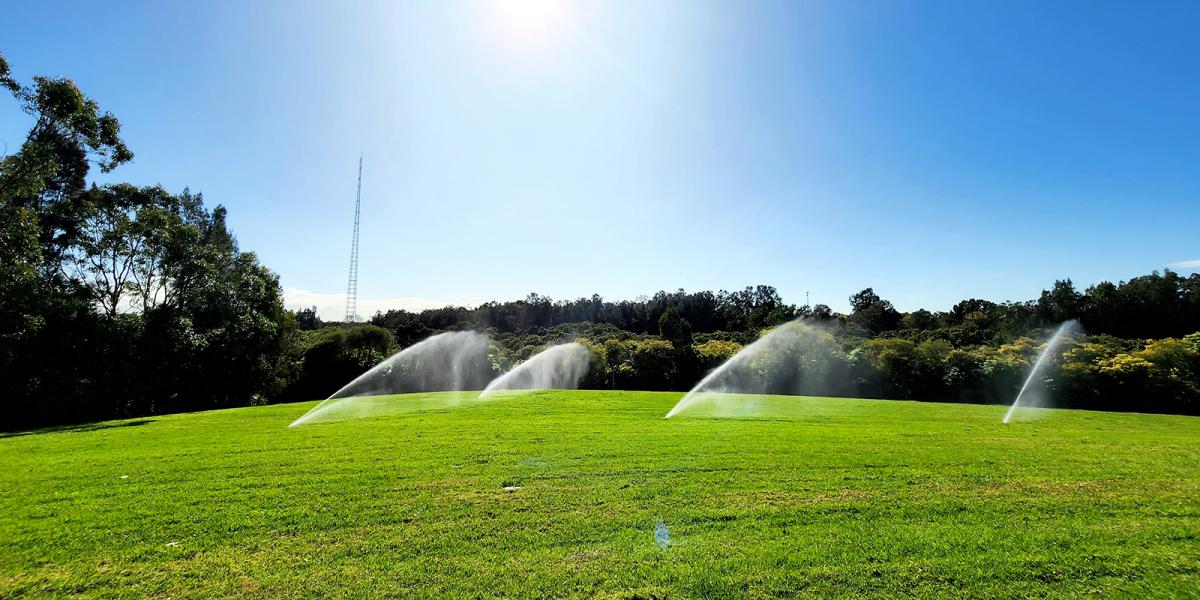
The Digital Restart Fund awarded $2.5M to Sydney Olympic Park Authority [SOPA] to finance parts of Smart Irrigation Management for Parks and Cool Towns (SIMPaCT).
Western Sydney University researchers developed the concept and are administering and delivering SIMPaCT with SOPA and Sydney Water, in partnership with a team of university researchers at UTS and Monash, and industry partners including The ARCs Group, Eratos, Centratech, HARC and Saphi.
A multidisciplinary partnership for smart green infrastructure
It is a multidisciplinary partnership, delivering Australia’s largest smart green infrastructure project, merging environmental monitoring, machine learning and irrigation management in a public green space, to provide the coolest possible microclimates for visitors and nearby residents during increasingly hot summers.
The final product will be a model for water utility providers, councils and government organisations to adopt, once it has been piloted and fully developed in Bicentennial Park.
Innovative data-driven solutions for efficient irrigation and park management
Using a combination of low-cost IoT soil moisture and ambient temperature sensors, weather stations and data gateways makes SIMPaCT affordable and achievable in Bicentennial Park, and future iterations of SIMPaCT where managers of urban green infrastructure have varying budgets and need to operate irrigation systems with variable levels of sophistication. SIMPaCT has been designed so that it is transferable, scalable, can integrate with existing irrigation systems and adapts to the needs of the targeted environment.
The LoRaWAN and 5G networks collect real-time data that is ingested into a cloud platform for model analysis and forecasting. In combination with BOM data, this data has contributed to the Digital Twin, to predict future conditions across a complex park environment and suggest irrigation programming. These commands are sent to the irrigation controller, which maximises efficiency of water usage whilst providing optimum conditions for tree transpiration. Combined, these processes maximise the park cool island effect and lower air temperatures in the park and surrounding areas by up to 4 degrees.
Predictive AI for smarter irrigation and park management
The hydrological model, Digital Twin, is based on the CRCWSC-Scenario Tool and will predict soil moisture levels and air temperature up to a week in advance. This not only informs the AI/Machine Learning that will calculate the effectively deliver the required water volume, but also allows for staff on the ground to identify possible issues in advance.
The SIMPaCT module includes manual over-ride options where embedded human knowledge can make more informed decisions on atypical scenarios. The inward and publicfacing user interfaces [UI] include data-rich visualisations with dashboards allowing users to see current, historical and forecast environmental data, helping irrigation personnel make real-time, data-informed decisions for park and vegetation health, and park visitors to choose the perfect day, time and location for activities in the park.
The Digital Restart Fund
Discover more about how the Digital Restart Fund is driving innovation.